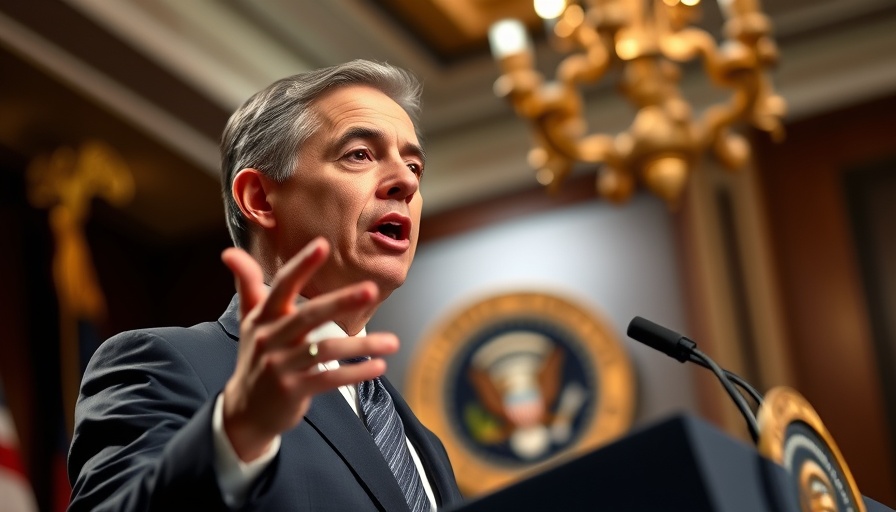
Unpacking the Political Resonance of 'Totally Corrupt'
In a charged political climate, Vice President JD Vance's remark—one simple word, "we're"—has ignited fierce debates, raising questions about the impartiality of the U.S. Department of Justice. Following a controversial FBI raid on former National Security Advisor John Bolton’s residence, Vance’s comments suggest a troubling entanglement of the executive branch with ongoing investigations. This situation serves as a critical reminder of the delicate balance between justice and political influence, particularly on issues pertinent to civil rights and immigration policy.
The Layers of Criticism
Legal experts and politicians alike have reacted swiftly. Critics of Vance have pointed out that his vague reference to “we” implies possible orchestration from the White House, violating the established norm that the Justice Department operates independently from political pressure. Harvard Kennedy School Professor Juliette Kayyem stated publicly, “Who is ‘we’ when the Department of Justice is supposed to be free of political influence?” This invocation of accountability resonates deeply within civil rights modalities, reminding attorneys and advocates how critical it is to uphold justice without bias.
The Ramifications for Civil Rights
This incident is not just an isolated remark; it echoes broader systemic issues within the government and the legal realm. For civil rights attorneys, what happens next could symbolize a larger trend regarding how legal actions unfold against political figures. With calls for transparency and separation from political machinations, lawyers involved in immigration or civil rights cases must remain vigilant about how this situation could influence public perceptions and judicial processes.
Public Reactions: The Pulse of America
Public sentiment surrounding Vance's comments is layered, with many supporting Bolton’s criticisms of Russian tactics while others see the raid as politically motivated retribution frosted over with a legal veneer. Vance’s connection to the investigation merits attention not just from government officials but from concerned citizens who are invested in the sanctity of legal proceedings. How the public perceives these actions will play a significant role in shaping future legislative actions regarding civil rights and social justice.
Future Implications
As the investigation unfolds, it could set significant precedents for how executive authority and judicial autonomy interact in the U.S. The implications stretch beyond Trump and Bolton, extending towards immigrants and marginalized communities often put on the back burner within these high-level discussions. The voices advocating for enhanced immigration and civil rights could shift dramatically depending on the outcome of this unfolding drama.
Informed Decisions for Attorneys
Understanding how political developments impact legal frameworks is crucial for attorneys navigating civil rights and immigration law. Staying abreast of these shifts will equip professionals to better advocate for their clients, ensuring they address any ensuing inequalities that could surface from politically driven legal actions.
The Vance-Bolton saga is more than just a story; it is a defining moment for advocacy in America. Attorneys, particularly in the fields of civil rights and immigration, must stay alert to these developments, as they wield the power to shape narratives and outcomes in both courtrooms and broader societal discussions. As we assess the fallout, it is essential to remain engaged in these conversations that affect the fabric of American democracy.
To explore how these developments impact your legal practice and advocacy work, engage with your peers, stay updated on current events, and be proactive in shaping conversations surrounding civil rights.
 Add Row
Add Row  Add
Add 




Write A Comment